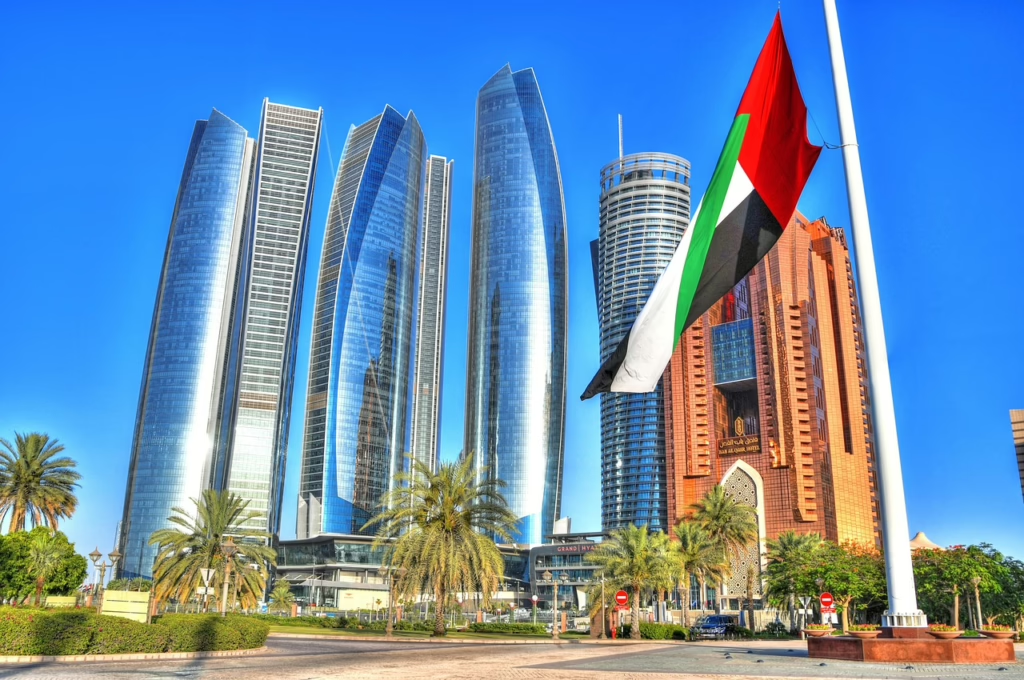For global entrepreneurs, investors, and location‑independent professionals, the UAE remains a powerful platform for tax‑efficient structuring, asset protection, and global mobility, provided they respect substance rules and international transparency standards. Understanding these reforms is now essential for anyone planning to treat the UAE as a long‑term wealth base and offshore jurisdiction of choice.
Not No‑Tax Anymore
Federal Decree‑Law No. 47 of 2022 introduced a standard corporate tax rate of 9% on business profits over AED 375,000, applicable from financial years starting on or after 1 June 2023. Profits below that threshold remain taxed at 0%, protecting very small and startup businesses from immediate tax burdens. Later updates confirmed that qualifying free zone companies can still enjoy 0% on qualifying income, with non‑qualifying income taxed at 9%.
In 2025, the UAE implemented a Domestic Minimum Top‑up Tax of 15% for multinational groups with global revenues above €750 million, ensuring their effective tax rate reaches the global minimum. This keeps the UAE aligned with OECD standards while preserving its appeal for smaller firms and high‑net‑worth individuals. For most founders, the real shift is the need for proper accounting, annual filing, and substance documentation instead of assuming automatic perpetual zero tax.

Free Zones and Offshore Companies: Where Zero Tax Still Survives
Free zones remain the backbone of the UAE’s offshore‑style offerings, particularly in Dubai, Abu Dhabi, and Ras Al‑Khaimah. Companies incorporated in these zones can still access 0% corporate tax on “qualifying income” if they become Qualifying Free Zone Persons and meet substance, activity, and de‑minimis rules.
Income from excluded activities or excessive mainland dealings becomes taxable at 9%. If a free zone company fails the qualifying or de‑minimis tests, it can lose its 0% status for several years (source: UAE Ministry of Finance). For serious offshore planners, that means corporate structures must match real operations, not just paper‑based shells.

Personal Taxes, VAT, and Everyday Costs for Residents
For individuals, the UAE still offers exceptionally friendly tax treatment. Residents do not pay personal income tax on employment income, most investment returns, or capital gains, which continues to attract professionals seeking higher net take‑home pay.
Property owners avoid recurrent federal property taxes, although there are local transaction‑level costs and fees depending on the emirate.
VAT, introduced in 2018 at 5%, remains one of the lowest standard VAT rates globally, with several exempt sectors like basic residential property, some financial services, and local passenger transport. From a lifestyle standpoint, higher living costs in major cities like Dubai can offset some tax savings, particularly in housing, schooling, and healthcare.
Still, for many globally mobile workers, the combination of zero personal income tax, modern infrastructure, and strong transport links makes the UAE a compelling base. The real risk lies not in local taxation but in home‑country rules on residency and worldwide income, which can re‑tax profits or salary repatriated from the UAE if tax residency is not carefully planned.

UAE vs Classic Tax Havens and Rival Hubs
When compared with traditional offshore centers like the British Virgin Islands, Cayman Islands, or certain Caribbean jurisdictions, the UAE offers a more substantial real economy, stronger banking, and better global connectivity.
Those older havens frequently appear on watchlists or face pressure to curb aggressive tax planning, whereas the UAE positions itself as a legitimate regional powerhouse aligned with OECD and G20 standards.
Against rivals such as Singapore, Hong Kong, or Ireland, the UAE still stands out through zero personal income tax, relatively light VAT, and selective 0% corporate tax in compliant free zones. Its 9% corporate rate on ordinary profits is lower than many European hubs, yet the 15% top‑up for large multinationals aligns it with global minimum tax rules Investors often view the UAE as a hybrid: not a secretive island tax haven, but a high‑mobility, lifestyle‑driven hub where executives can live, work, and manage international assets while enjoying substantial—though no longer absolute—tax benefits.

So, Is UAE a Tax Haven?
Yes it is, with proper tax planning for certain income earners located in the free zones, individual entrepreneurs and remote workers (0% income tax) and stock/crypto investors (also 0% tax).
The UAE has evolved from an almost totally tax‑free haven into a sophisticated, low‑tax jurisdiction that prioritizes transparency and substance. The core advantages remain powerful: no tax on personal income for residents, targeted 0% corporate rates for qualifying free zone entities, strong asset‑protection laws, and world‑class infrastructure.
The key is no longer to chase secrecy but to design resilient, lawful structures that harness the UAE’s strengths while remaining future‑proof against ongoing international reforms.








